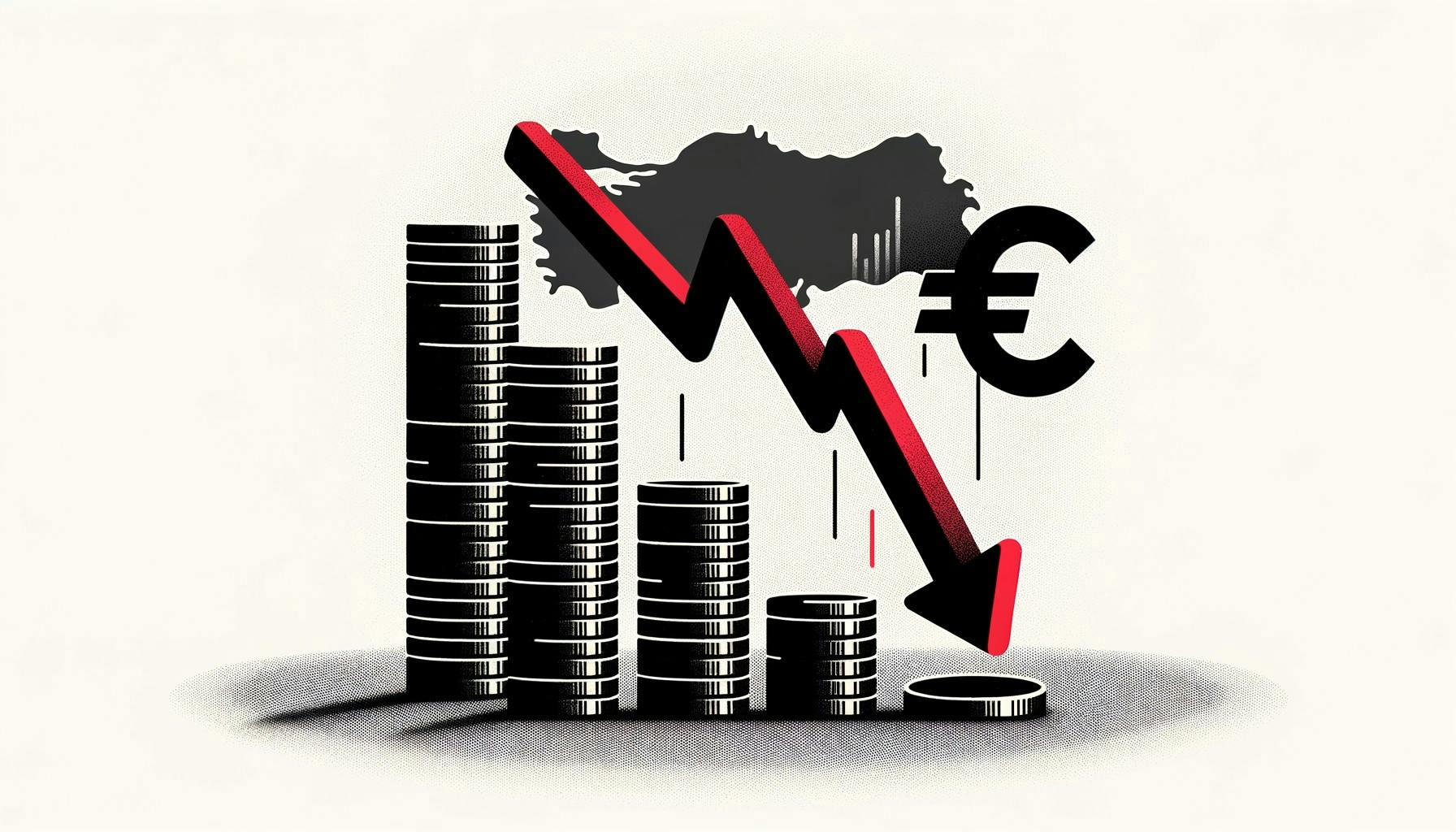Turkish Lira Tumbles While Central Bank Holds Steady
What’s going on here?
Turkey’s central bank kept interest rates steady at 50%, even as the Turkish lira (TRY) traded lower at 33.9000 against the US dollar (USD) early Wednesday.
What does this mean?
Turkey’s central bank decision to maintain its steep interest rate highlights a cautious stance in the face of persistent inflation. The lira’s continued slip, showing no improvement from Tuesday’s close of 33.8925, is a troubling sign. Meanwhile, the BIST 100 index fell 0.72% to 9,982.28 points on Tuesday, reflecting broader market jitters. Globally, Asian shares faltered and investors awaited critical US economic data, which could prompt rate cuts. Locally, Turkey’s government transferred company shares to the Turkey Wealth Fund, hinting at strategic economic consolidations.
Why should I care?
For markets: Balancing act in turbulence.
The Turkish lira’s decline reflects market skepticism about the central bank’s ability to tackle inflation. Investors will monitor global bond yields and US dollar movements closely as these factors will influence emerging markets. Additionally, financial consolidations within Turkey, highlighted by the transfer of 12 companies to the Turkey Wealth Fund, could significantly impact market dynamics and investment flows.
The bigger picture: Turkey’s economic ripple effects.
Turkey’s economic decisions resonate beyond its borders. While steadfast interest rates might stabilize some domestic elements, the lira’s weakness could lead to higher import costs and fuel inflation. Observing the Trade Minister’s regional visits and strategic developments might offer insights into upcoming economic policies and infrastructural investments aimed at bolstering the Turkish economy long-term.




